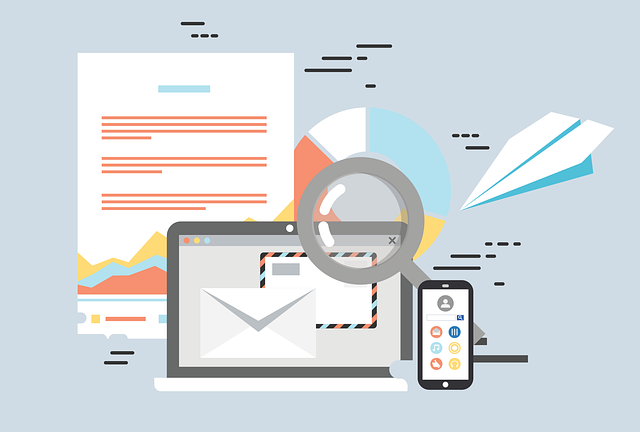
Want to know how to increase the open rate of your emails this year? We’ve got you covered.
Email open rates may be the most important metric for email marketing. If no one opens your email, then they won’t click on the links either.
The average open rate of emails across industries is just over 21%. You need to improve if you don’t meet this benchmark.
This post contains 16 proven methods to increase open rates. We’ll show you exactly how to use them and explain why they work.
Upgrade your email service provider.
To increase email open rates, you must first improve email delivery.
Your subscribers won’t see your emails if they don’t reach their contacts’ inboxes.
Unfortunately, some email providers are not very good at delivering emails. If you aren’t getting the number of opens you expected, your email provider could be holding you back.
MailerLite delivered emails at rates that were industry-leading in our tests. If you want to get your emails into the inboxes of your recipients, now is the time to make a switch.
Check out our list of the top email marketing software if you’re not sure if MailerLite will work for you.
Verify email addresses regularly.
Verify your contacts regularly. This is another way, besides switching to a better ESP, to improve your deliverability (and, with it, open rate).
Email Verification Tools Check all the emails in your list and make sure that they are real. Remove any fake addresses or spam traps.
This will help you eliminate hard bounces. Too many bounces could lead to your blocklisting and a decrease in your deliverability.
Verification tools may also reduce spam complaints by identifying contacts that mark emails as spam frequently.
This is important because a spam complaint ratio above 0.1% will seriously affect your Sender’s Reputation score, which is directly related to deliverability.
We recommend using Mailfloss to verify email addresses automatically.
Both easily integrate with popular email providers such as MailerLite, ConvertKit, etc.
Remove inactive subscribers regularly.
It’s important to remove inactive subscribers from your list, as well as remove fake email addresses.
Inactive subscribers are the ones who don’t open your emails anymore. These subscribers are essentially dead weight, as they do nothing but reduce your open rates. It’s not worth keeping them around.
It’s easy to remove inactive subscribers if you use MailerLite.
Click Clean Up Inactive and then adjust the settings according to how you wish to classify your inactive subscribers. Contacts that have not opened more than ten emails in the past 6/12/24 month.
Email Marketing Automation is another option if you do not use MailerLite.
Email Automation Tools, such as ActiveCampaign, allow you to create workflows that automatically remove contacts from a list when certain conditions/triggers are met.
You could, for example, create a workflow to automatically mark your subscribers inactive if none of their emails have been opened within the last three months.
You could then set up a workflow to automatically remove inactive subscribers or add them to a workflow for re-engagement (see tip 13) to get them back.
Double opt-in when creating your list
How many times did you submit an opt-in on a website to receive a free lead magnet despite not really wanting to be on the website’s mailing or newsletter list?
I’ve done it countless times. Now, I have a lot of emails in my inbox that I’ve never opened because I wasn’t interested in them at all. I wanted the initial freebie.
You don’t need a list of people like me if you want your open rates to be as high as possible. You want to have a list of people interested in the marketing message you are sending.
Double opt-ins are one of the most effective ways to accomplish this.
Double opt-ins have the same benefits as single opt-ins but require an additional step. The contact will receive an email after submitting the form. They must open the email and click on the link in order to confirm their subscription.
Contacts that don’t wish to be on your list will not bother taking the extra step. Double opt-ins help to maintain a high level of interest from your contacts.
This will help you to increase your open rate.
ActiveCampaign, MailerLite, and most email marketing software support double opt-ins. It should only take a few clicks to activate them.
Send emails at the right times.
You might be sending your emails at the wrong time if they aren’t being opened as much as you would like.
If you send an email to a contact while they are asleep, the message will likely be buried under a mountain of emails when they check their inbox.
According to the latest email marketing statistics, most marketers believe that the best day to send emails is Tuesday, followed by Wednesday, and then Thursday.
If you stop to think about it, this makes perfect sense. Weekends are a time when people may not check their email. The best time to contact them is mid-week.
MailChimp data suggests that 10 am would be the best time to send out emails. Remember: This means 10 am in the recipient’s time zone, not yours.
Most email marketing tools let you schedule emails to be delivered in the recipient’s time zone.
Some of the advanced tools will even calculate the optimal time to send your message based on your audience’s engagement metrics, such as opens and clicks.
Change your sender name.
Many people are very focused on the subject line when trying to maximize open rates.
While subject lines are important, another factor is even more crucial: the sender’s name.
Research by Litmus shows that 42% of subscribers open emails based on their sender, while only 34% rely on the subject.
What sender name can you use to increase the number of opens?
Unfortunately, the answer is no. What’s best for me might not be best for you, and vice-versa.
There are some best practices that you should keep in mind. Trust, recognition, and consistency are the three most important factors.
Sender names should be ones that people recognize and trust. It should be used consistently throughout your campaigns to establish that trust.
Avoid using your email address as the sender’s name. Try not to use special characters, either. Many users will see this as a sign of spam.
I’ve found that personal names perform better than business names. You can experiment to find out which one works best for you.





